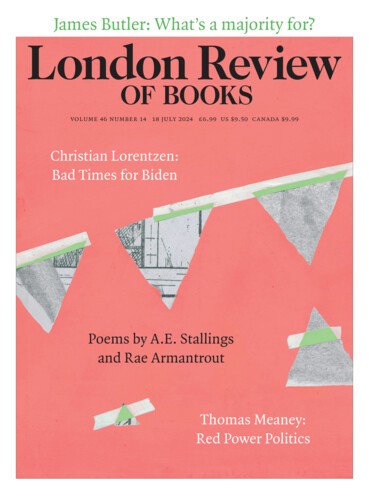At the Republican National Convention
Andrew O’Hagan
There was lightning in the sky over Chicago, and I was waiting at the airport. An announcement echoed across the departure gate: there was going to be a delay. I hadn’t looked at the book in front of me in more than thirty years – Norman Mailer’s Miami and the Siege of Chicago, his two convention pieces from 1968 – and just as my phone began to buzz my eye landed on...


